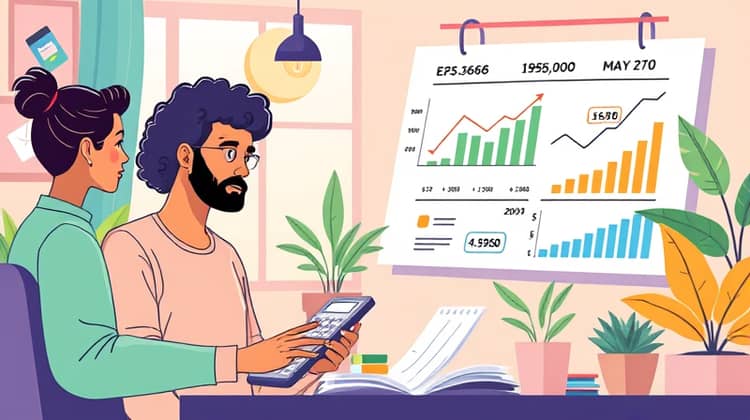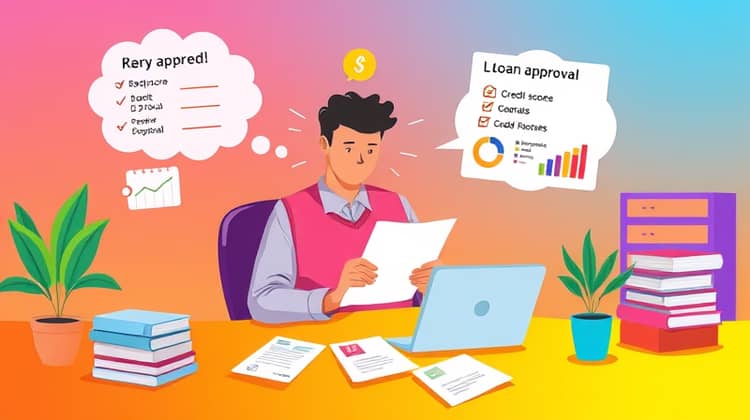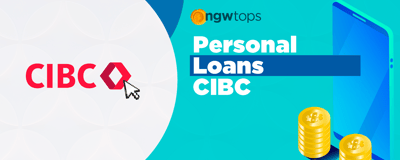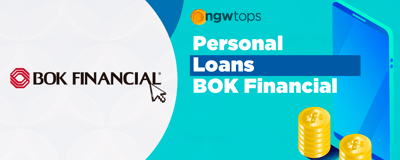Personal Loan Qualifications: Tips to Boost Your Approval Chances

Applying for a personal loan can often feel daunting, especially if you're unsure of the qualifications required for approval. There's a common misconception that personal loans are accessible to anyone, but the reality is that lenders have specific criteria they utilize to evaluate potential borrowers. Understanding these qualifications can empower you and potentially improve your chances of getting approved.
In this blog post, we'll explore the key factors that determine personal loan qualifications, including your credit score, debt-to-income ratio, employment status, and the purpose of your loan. By delving into each of these elements, we hope to provide you with valuable insights to help you prepare your application and increase your likelihood of success.
Additionally, we will offer practical tips on how to enhance your financial profile, ensuring that you present the best case to lenders. Whether you're looking to consolidate debt, finance a large purchase, or cover unexpected expenses, being well-informed about personal loan qualifications is the first step towards achieving your financial goals.
Understanding Personal Loan Qualifications

When it comes to personal loans, different lenders have varying criteria that they consider before granting approval. However, there are fundamental qualifications that most lenders will look at in an applicant. Familiarizing yourself with these qualifications can help you assess whether you are a suitable candidate for a personal loan and, if needed, provide you with the opportunity to improve your chances of approval.
The primary qualifications usually include assessing your credit score, debt-to-income ratio, employment history, and the intended purpose of the loan. Each of these factors plays a vital role in the lender's decision-making process, determining your reliability as a borrower and the risk associated with extending credit to you.
Lenders aim to minimize their risk by using these qualifications to evaluate your ability to repay the loan. It’s essential to be transparent about your financial situation, as providing accurate information can greatly influence your approval odds. Getting familiar with these qualifications is the first step in positioning yourself as a favorable borrower.
1. Credit Score

Your credit score is one of the most critical components in determining your eligibility for a personal loan. It reflects your creditworthiness based on your past borrowing behavior and repayment history. Lenders typically use credit scores within a range of 300 to 850, with higher scores signifying lower risk to the lender.
A better credit score not only boosts your chances of getting approved, but it can also secure you lower interest rates on your personal loan. This means that having a solid credit score can save you significant money over the term of the loan. It’s advisable to check your credit report regularly to understand where you stand and identify areas for improvement.
- Aim for a credit score of at least 700 to increase approval odds.
- Review your credit report for errors and dispute any discrepancies.
- Limit hard inquiries into your credit during the months leading to your application.
Taking actionable steps to improve your credit score, such as making timely payments and reducing outstanding debts, can lead to a favorable borrowing experience. If necessary, consider seeking advice from credit counseling services for personalized strategies.
2. Debt-to-Income Ratio

Another crucial factor is your debt-to-income (DTI) ratio, which compares your total monthly debt payments to your gross monthly income. This ratio helps lenders understand how much of your income is already allocated to debt obligations, providing insight into your ability to take on new debt responsibly.
A lower DTI ratio often reflects a healthier financial status, signaling to lenders that you have enough disposable income to manage additional loan payments without strain.
- Calculate all monthly debt payments (mortgage, credit cards, etc.) and divide by your gross monthly income.
- Aim for a DTI ratio below 36% for better chances of approval.
- Examine your monthly budget and look for ways to decrease existing debt before applying for a loan.
By working to lower your DTI, you demonstrate to lenders that you can manage your finances efficiently, increasing your attractiveness as a borrower.
3. Employment and Income

Lenders will often assess your employment history and income stability when determining your eligibility for a personal loan. Regular employment and a steady income can indicate to lenders that you have the means to repay the loan comfortably. Self-employed individuals or those with variable income may need to provide additional documentation, such as tax returns or bank statements, to verify earnings.
In general, being in a stable job and having a consistent income stream boosts your approval chances and may even facilitate securing a larger loan amount than you initially sought.
4. Loan Purpose

The intended purpose of your loan is also considered, as certain types of loans carry different levels of risk for lenders. For instance, loans for home improvements may be viewed more favorably than those for luxury spending. Lenders want to understand how you plan to use the funds and whether the purpose aligns with responsible borrowing practices.
Being transparent about the loan purpose can also facilitate a better planning process for your financial future, making sure you're borrowing for sound reasons that contribute to your long-term goals.
Tips to Boost Your Approval Chances

In addition to understanding the qualifications needed for a personal loan, there are proactive steps you can take to enhance your approval chances. Being strategic and informed can significantly influence your success in obtaining the loan you desire. A few simple measures can make a world of difference when it comes to applications.
Prepare your documentation, review your financial profile, and ensure you meet the minimum requirements set forth by your target lenders.
- Check your credit report in advance and work on improving your score if necessary.
- Maintain a low debt-to-income ratio before applying for the loan.
- Gather all required documentation in advance to ensure a smooth application process.
- Consider applying with a co-signer if your financial profile isn’t strong enough on its own.
Taking these steps can not only bolster your application but also prepare you for better financial decision-making in the future.
Conclusion

Acquiring a personal loan can be a significant financial move, but being aware of the qualifications and tips mentioned in this guide can greatly enhance your chances of approval. Understanding your credit score, debt-to-income ratio, employment status, and the purpose of the loan can provide you with a clearer path to securing funds.
Beyond simply understanding these qualifications, taking proactive measures to improve your financial standing can help you not only with approval chances but also with lowering borrowing costs through better rates. Ensure that you're in the best position possible before applying, by monitoring your finances and striving for improvement when needed.
Remember that the goal is not just to get approved for a loan, but to ensure that it contributes positively to your financial well-being. By following the tips provided in this article, you should be well-equipped to navigate the personal loan process with confidence.






